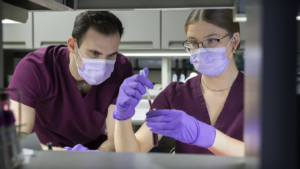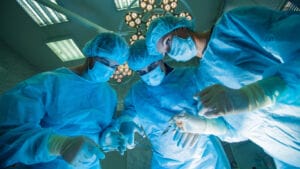Every year millions of lives are affected by illnesses that could have been prevented with early intervention. In today’s fast paced health care world preventive health care is not just a recommendation it’s a necessity for long term wellness, controlling rising medical costs and reducing the global burden of chronic disease.
With increasing life expectancy, higher rates of lifestyle related illnesses and the strain on public health systems preventive care has become a cornerstone of modern medicine. It allows individuals and health systems to take control before small issues become big problems.
LOCAL NEWS: 100 best places to work and live in Arizona for 2025
What Is Preventive Health Care?
Preventive health care refers to a variety of medical treatments and lifestyle measures to prevent disease or identify it in its early stages when treatment is better and cheaper. It’s a forward-thinking approach that emphasizes wellness not waiting for sickness to strike.
Preventive care habits that are common are:
- Routine health screenings for hypertension, diabetes and cancers of various kinds
- Vaccinations that guard against contagious diseases
- Healthy eating, physical activity and stress management counseling
- Individualized risk calculations by genetics, environment and age
They are particularly relevant for chronic disease management such as heart disease, diabetes, cancer and dementia that account for the majority of deaths globally.
The importance of preventive medicine is reflected in market trends. According to recent data, the global preventive medicine market was valued at over 417 billion dollars in 2024 and is expected to approach one trillion dollars by 2035, fueled by technological innovations and aging populations.
Why Preventive Care Is More Essential Than Ever?
The urgency for preventive health care extends far beyond individual well-being. It is now a public health priority that influences economic stability and societal resilience. As global populations age, the risk of chronic illness rises, demanding a shift from reactive treatment to proactive intervention.
Technology is driving this change. From wearable health devices to AI powered diagnostics and telemedicine platforms, we can now monitor and manage our health in real time. The COVID 19 pandemic has also heightened awareness around immunity, hygiene and early detection and accelerated investments in preventive care across the world. In India, for example, the preventive health care market is projected to reach 197 billion dollars by 2025.
Preventive care also reduces long-term costs. By catching conditions early or avoiding them altogether, individuals and governments save on hospitalizations, complex treatments, and productivity losses caused by illness and disability.
Core Elements of Preventive Health Care
Preventive care is multi faceted. Its power rests in the blend of medical, technological and behavioral elements that interact with the goal of preventing and promoting health.
- Regular Screenings and Medical Checkups
Routine medical check-ups are the cornerstone of preventive health. Regular check-ups can identify cancers, diabetes, and high blood pressure when they are most curable. For instance, breast and cervical cancer screening programs have resulted in a considerable decline in mortality in a majority of nations. Vaccinations also provide protection by creating a shield against infections and their complications.
Vaccines are the most powerful tools in public health. Childhood immunization to booster shots in adults and flu shots every fall, vaccinations cut down on infectious disease spread and provide protection for vulnerable groups. COVID 19 vaccines have demonstrated the potential of global immunization to control health emergencies.
- Lifestyle Guidance and Wellness Support
Most chronic diseases are brought about by our everyday behaviors. Preventive care involves tailored advice regarding diet, exercise, sleep and mental health. Employer, school, and community programs are now emphasizing well-being and encouraging individuals to make healthier decisions and minimize long-term risks.
- Bringing Preventive Care into the Home
As preventive care evolves the home is becoming a key space for health management and recovery. Advances in remote monitoring and home based medical solutions make it easier for us to take control of our health without visiting a clinic or hospital.
The Role of Hospital Beds for Home Use
For those recovering from surgery, managing mobility issues or living with chronic conditions, hospital beds designed for home use provide both comfort and functionality. These adjustable beds improve circulation, reduce the risk of pressure injuries and help with breathing issues. They also have safety features like side rails and height adjustment which are essential for caregivers and family members.
Families looking for Hospital beds for home use near me often turn to rental services. This allows them to access high quality equipment without the burden of full purchase costs and make it easier to create a supportive and healing home environment.
The Value of Medical Equipment Rental
Many health conditions require temporary solutions rather than permanent purchases. Renting medical equipment such as oxygen machines, mobility aids, or monitoring devices offers flexibility and affordability. Most rental services also provide maintenance and setup support, helping patients feel confident and cared for during their recovery at home.
Providers like Hospital Bed Rental and other regional companies are making it possible for more families to embrace home-based care while maintaining high standards of safety and comfort.
Practical Ways to Embrace Preventive Health Care
Taking preventive care doesn’t have to be complicated. Simple, regular habits can cumulatively add up over the years:
- Make regular checkups even when you feel well
- Get vaccinated against recommended vaccines for your age and status
- Track your sleep, heart rate and physical activity using health monitoring devices or apps
- Eat healthy, exercise regularly and handle stress
- Quit smoking and avoid excessive alcohol
- Discuss your individual risk factors with your doctor and develop a prevention plan
- Utilize home medical equipment when necessary to aid recovery or care of the elderly
Conclusion
Preventive care is no longer a luxury – it’s a necessity for sustainable, fair and effective health systems. By focusing on early detection, lifestyle changes and home based support we can reduce chronic disease, improve quality of life and reduce long term costs.
As individuals, caregivers and health professionals taking prevention means building a future where health is maintained not just restored. Whether it’s through regular checkups, lifestyle changes or home based equipment like hospital beds the path to better health starts with the choices we make today.




